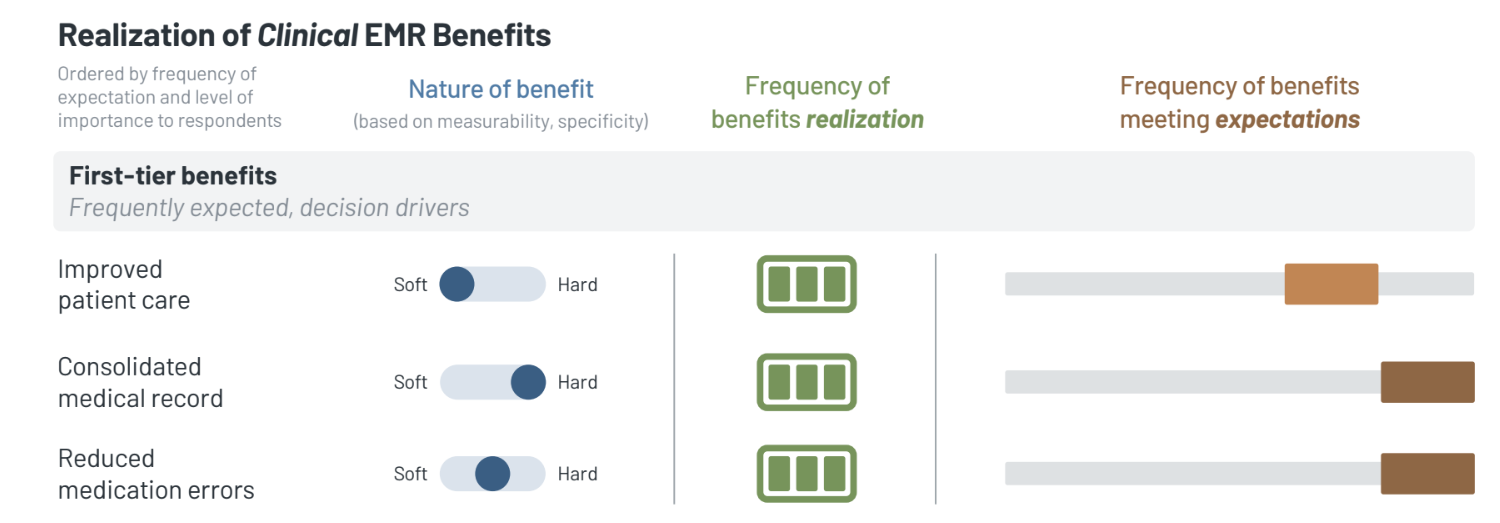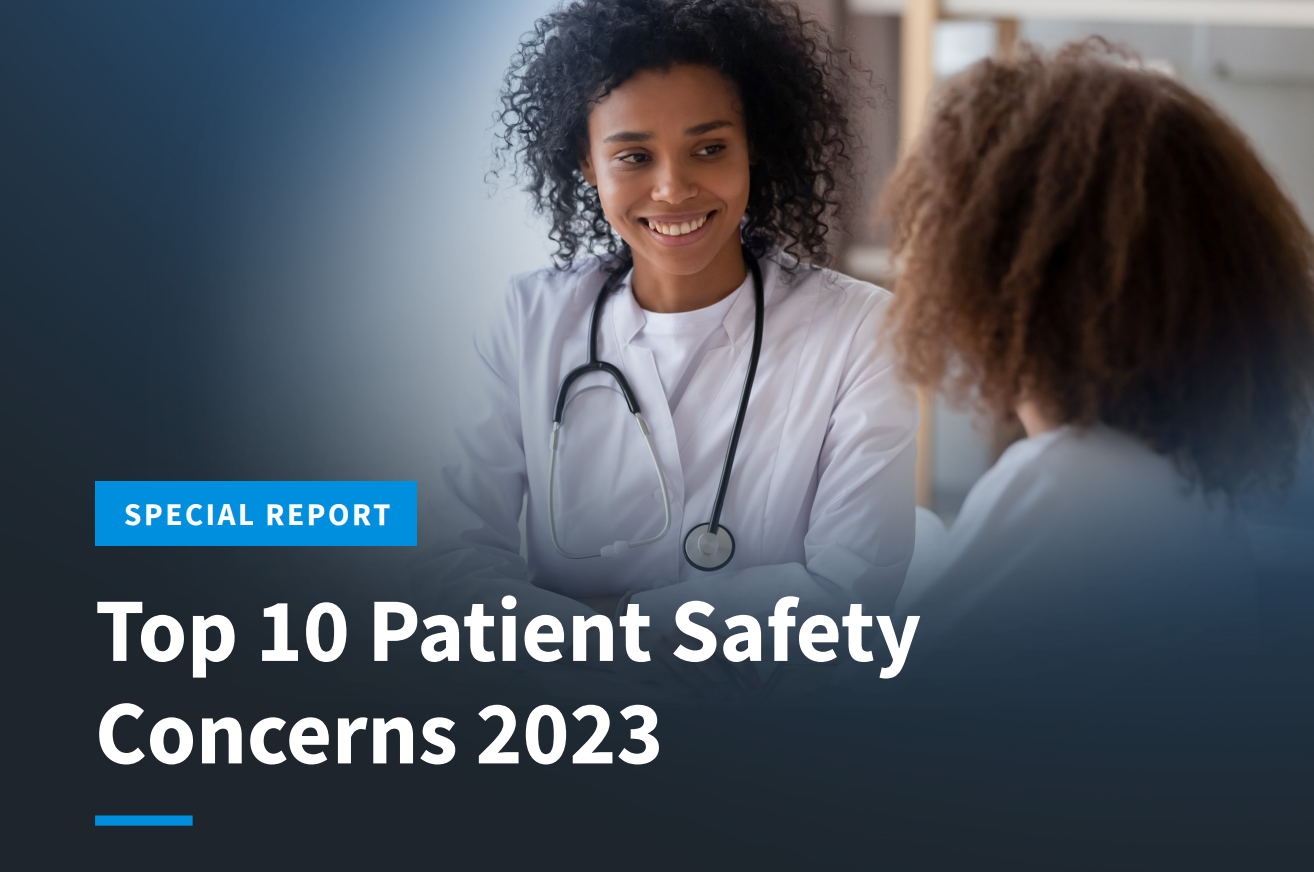What You Should Know:
As electronic medical record (EMR) adoption grows worldwide, healthcare organizations considering this digital transformation all have the same question: what benefits can we really expect to receive from implementing an EMR?KLAS interviewed leaders at 36 non-US healthcare organizations—12 of which are HIMSS Level 6 or 7—to learn about their journey to realizing benefits from an EMR implementation. Their latest report summarizes their insights, including what
Read More
Sepsis
ECRI Names Top 10 Patient Safety Concerns for 2023
What You Should Know:
- The pediatric mental health crisis is named the number one patient safety concern, according to ECRI’s 2023 list of most pressing patient safety concerns.
- The nation’s largest nonprofit patient safety organization notes that, while rates of depression and anxiety in children have increased since 2017, the COVID-19 pandemic has elevated the situation to crisis levels.
Here are
Read More
Why Researchers Should Explore New Apps of Machine Learning
As the amount of real-world data (RWD) in the pharmaceutical industry continues to grow, so does the usage of machine learning (ML) to analyze that data and gain insights. In fact, in a recent survey, 95% of life sciences executives said they expect to utilize ML in the next few years to generate real-world evidence (RWE) from this data.
With such a large and growing volume of data available, researchers may be wondering how they can take advantage of all of it to enhance and expand the
Read More
When Advancing a Medical Device, Be A Partner First & Seller Second to Hospital Systems
US hospital systems validate the safety, clinical utility, and robustness of newly FDA-approved devices, 510(k) cleared, before adopting them into clinical practice. This work occurs alongside evaluating how to integrate the medical device into the hospital system’s diagnostic paradigms, including in relation to quality improvement programs. Companies can have a role but there are 415 US hospital systems (comprising ~5,000 hospitals), and each has a bespoke process and ever-changing set of
Read More
3 Steps to Powering Data Innovation with Analytics & AI
A hot topic we see and hear a lot in healthcare is leveraging big data. Little known fact, we don’t yet have big data in healthcare, so the industry hasn’t had the opportunity to use big data. Healthcare has been in the “little data” game because much of the healthcare experience has yet to be digitized. In addition, interoperability issues leave much data siloed on disparate databases across the healthcare ecosystem.
This is all changing, and this change is accelerating. We’re quickly
Read More
HCA Makes Strategic Investment in Cardiac Monitoring Wearable VitalConnect
What You Should Know:
- VitalConnect®, Inc., a leader in remote and in-hospital wearable biosensor technology, has just announced the completion of an investment funded by Health Insight Capital, the investment arm of HCA Healthcare Inc., (NYSE: HCA), one of the nation’s leading healthcare providers.
- The investment will go toward further accelerating VitalConnect’s rapidly growing cardiac monitoring business segment while advancing key Remote Patient Monitoring of individuals who
Read More
Cedars-Sinai Accelerator Adds 10 New Digital Health Startups
What You Should Know:
- Cedars-Sinai Accelerator, today announced its eighth accelerator class of ten new digital health startups.
- From digital health mental health services to wearable devices to manage chronic asthma, these innovative healthcare-focused startups are working to transform health and healthcare delivery as part of the Los Angeles-based accelerator program.
Cedars-Sinai Accelerator Overview
During the three-month term, company representatives collaborate with
Read More
Precision Medicine Startup Prenosis Raises $20M for Acute Care Solutions, Starting with Sepsis
What You Should Know:
- Prenosis, Inc., a precision medicine company, announced a venture investment from PACE Healthcare Capital, an early-stage investment firm committed to improving health outcomes. This investment brings total funding in the company to over $20 million, including partnerships with Foxconn, Roche Diagnostics, the Defense Threat Reduction Agency, and others.
- Precision medicine company will use the funding to
Read More
Tift Medical Integrates Sepsis Monitoring with Cerner EHR to Improve Early Detection
What You Should Know:
- Clinicians now access Wolters Kluwer’s real-time sepsis monitoring alerts within Cerner EHR at Tift Regional Medical Center.
- POC Advisor’s highly accurate alerts and guidance are automatically delivered to the point of care to improve sepsis patient outcomes.
Wolters Kluwer, Health today announced that Tift Regional Medical Center, the flagship hospital of Southwell, a Georgia not-for-profit health system, has integrated POC Advisor, its sophisticated sepsis
Read More
Deploying Advanced Decision Support for Better Sepsis Management
As the leading cause of hospital deaths in the United States, sepsis is a significant concern for patients and providers alike. In a 2020 study, the World Health Organization found a 46% mortality rate for patients treated in the ICU for sepsis. Sepsis care is expensive, costing the US healthcare system an estimated $33 billion per year. Data shows a single admission for sepsis care can cost anywhere between $22,000 and $70,000, making it the most expensive infection for hospitals, and
Read More










